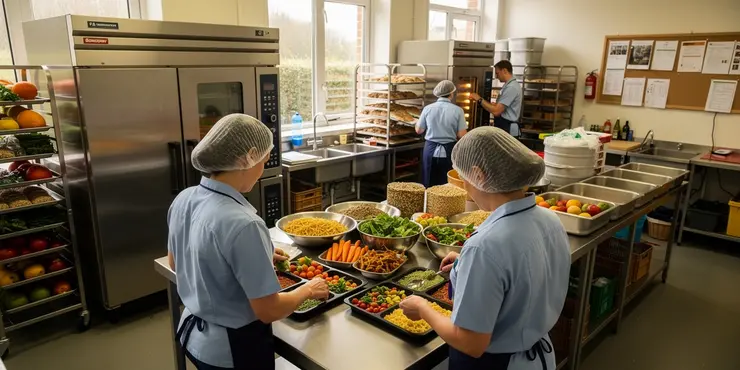
Find Help
More Items From Ergsy search
-
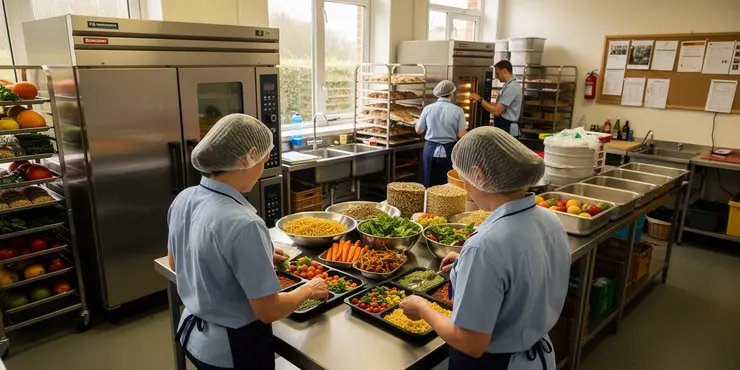
Are school meals inspected for quality and standards?
Relevance: 100%
-
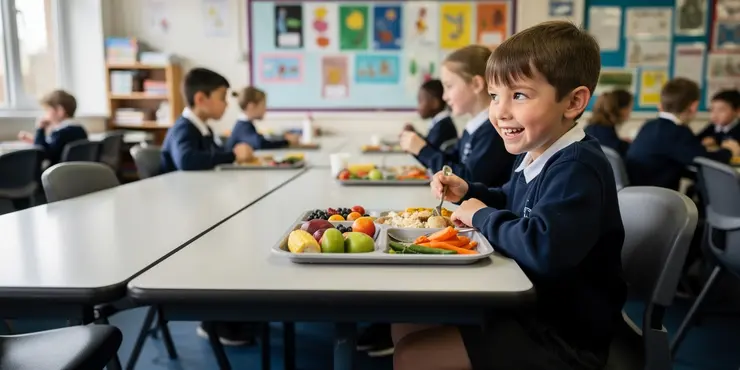
School meals in the UK?
Relevance: 68%
-
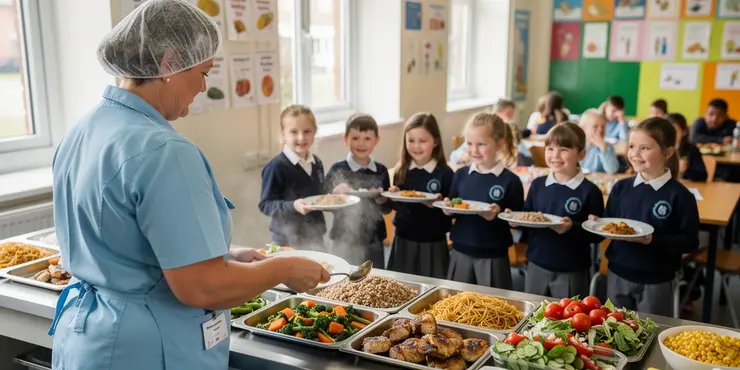
How are school meals provided in the UK?
Relevance: 66%
-
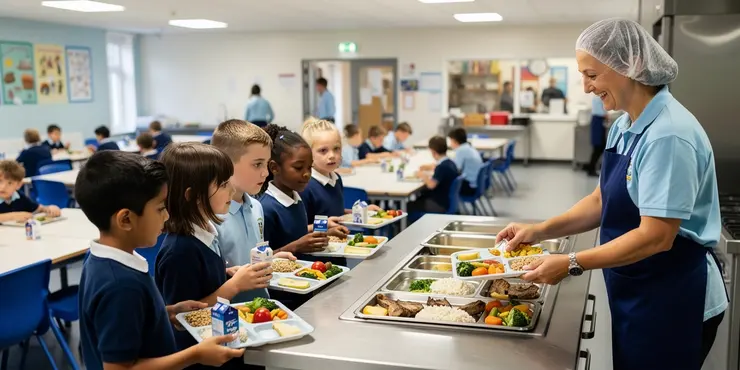
Who is responsible for providing school meals in the UK?
Relevance: 63%
-
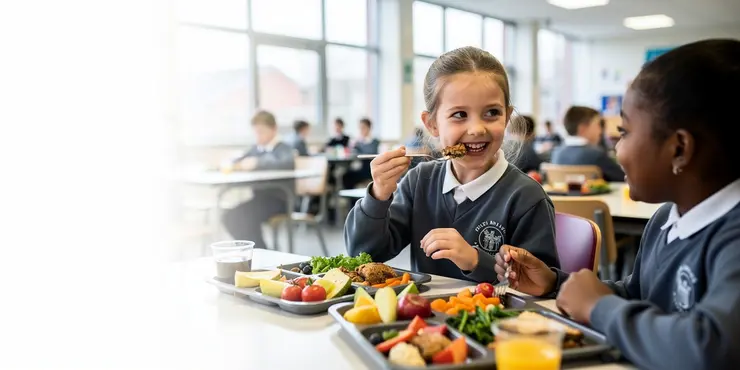
What is the purpose of providing school meals in the UK?
Relevance: 60%
-
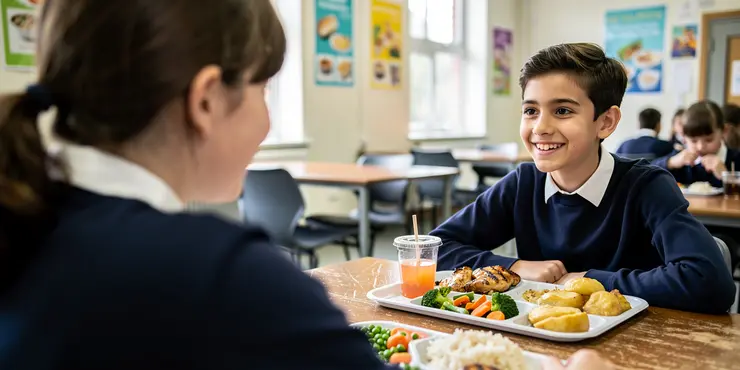
What is included in a typical school meal in the UK?
Relevance: 57%
-
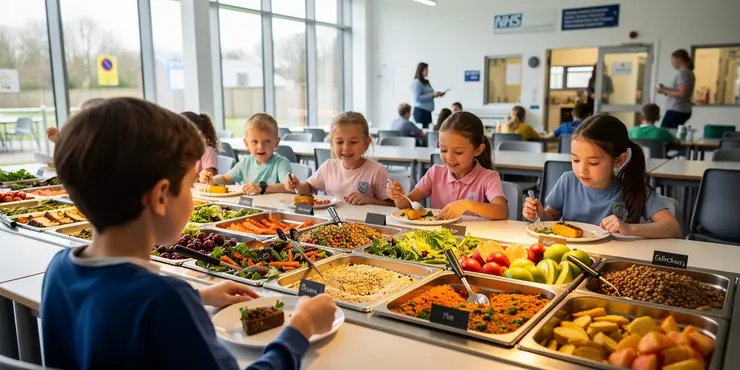
Are vegetarian or vegan options available in UK school meals?
Relevance: 55%
-
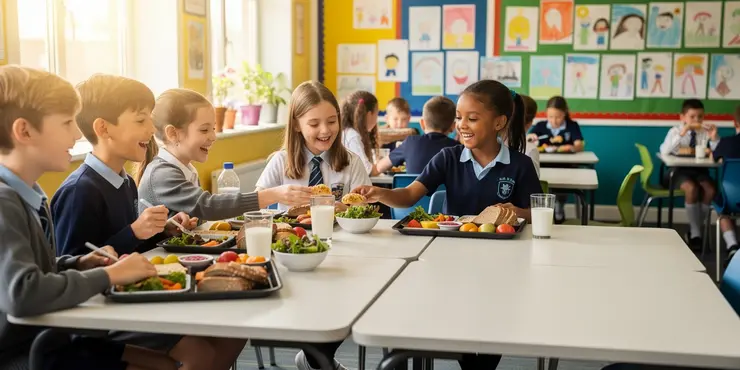
Calls for Better School Lunch Standards After Nationwide Survey
Relevance: 53%
-
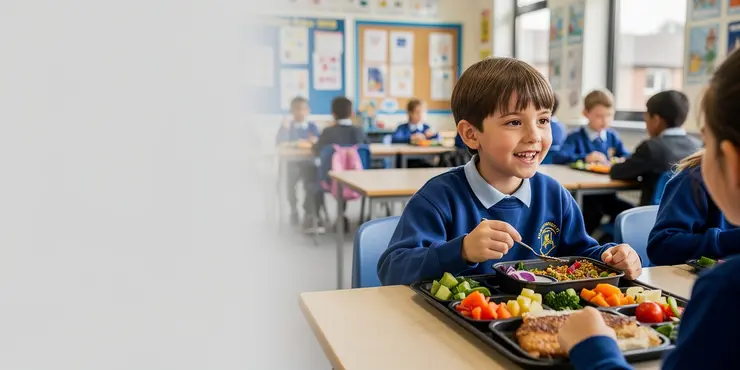
Are school meals free for all students in the UK?
Relevance: 53%
-
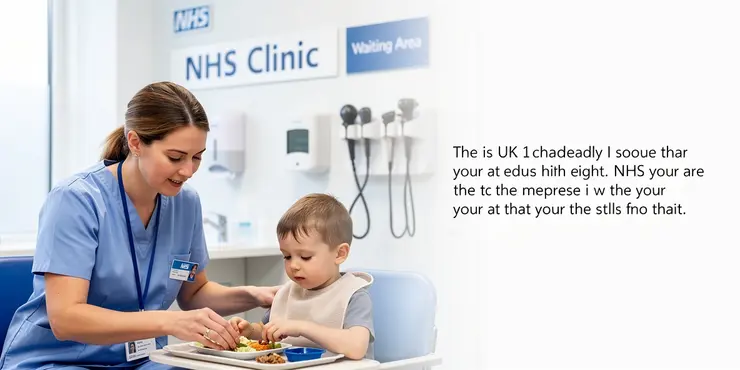
Who provides the funding for free school meals in the UK?
Relevance: 53%
-
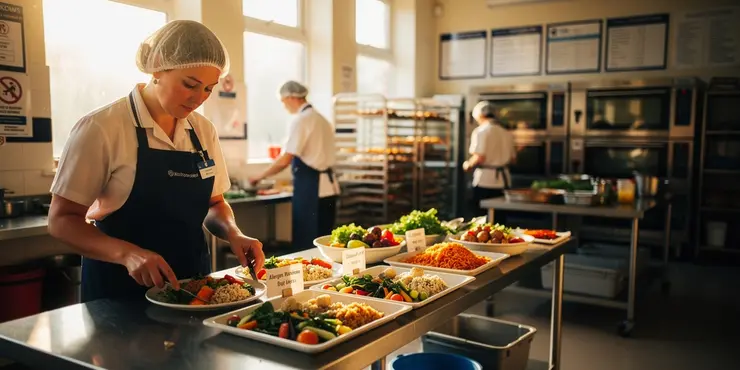
How are special dietary requirements catered for in school meals?
Relevance: 53%
-
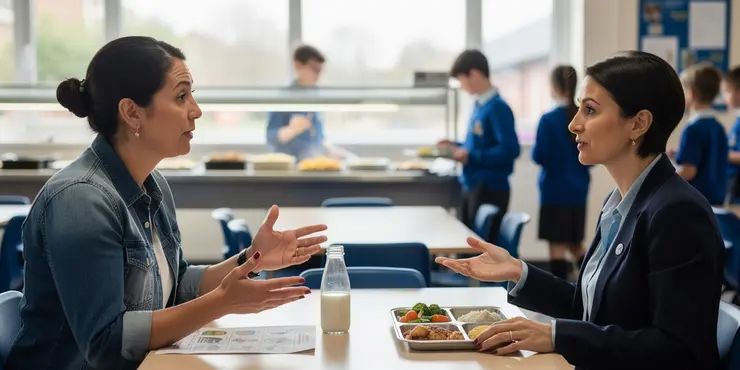
How can parents provide feedback on school meals?
Relevance: 52%
-
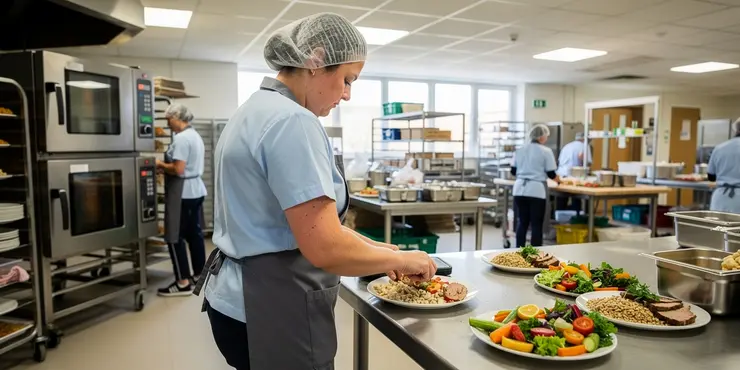
What measures are taken to ensure food safety in school meals?
Relevance: 52%
-
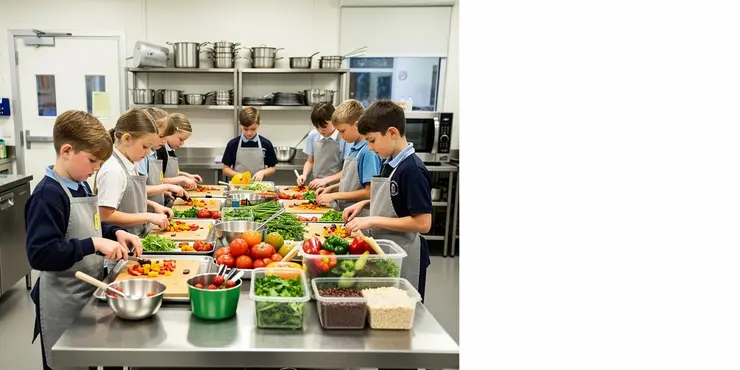
Are there educational components to the school meal program?
Relevance: 51%
-
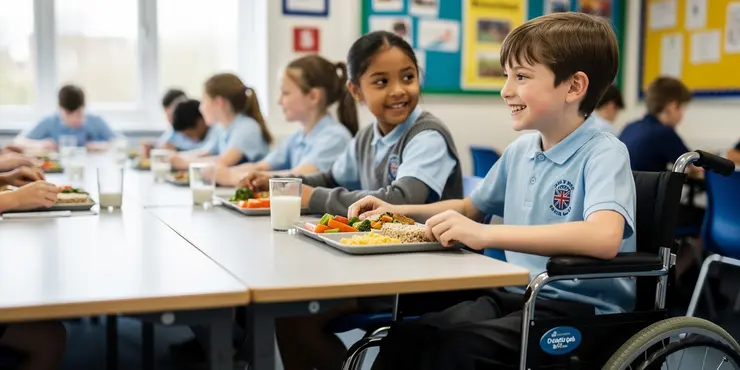
Can children with disabilities access school meals?
Relevance: 50%
-
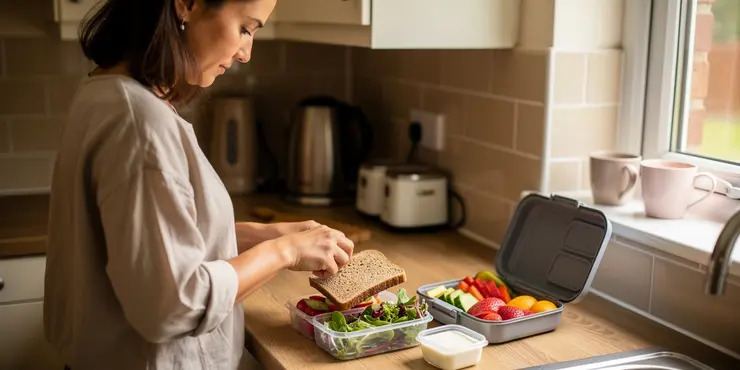
Can parents provide packed lunches instead of school meals?
Relevance: 47%
-
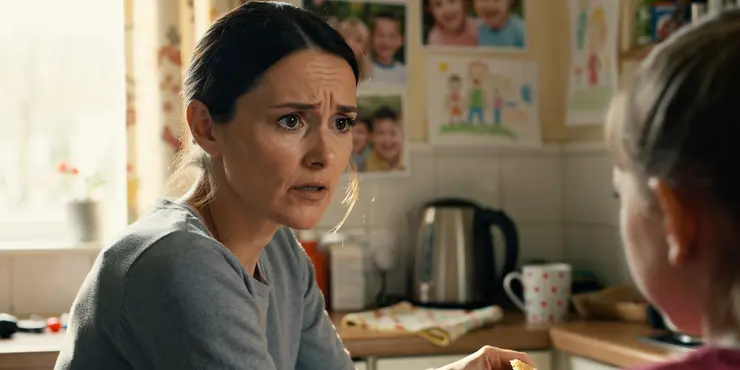
What criteria must be met for a child to be eligible for free school meals?
Relevance: 46%
-
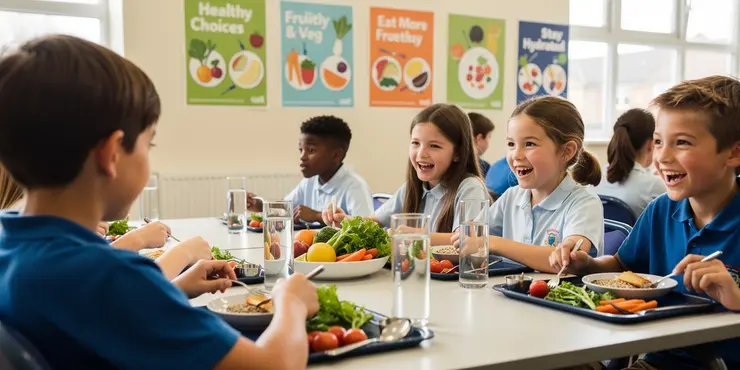
Is there a focus on healthy eating in UK school meals?
Relevance: 45%
-
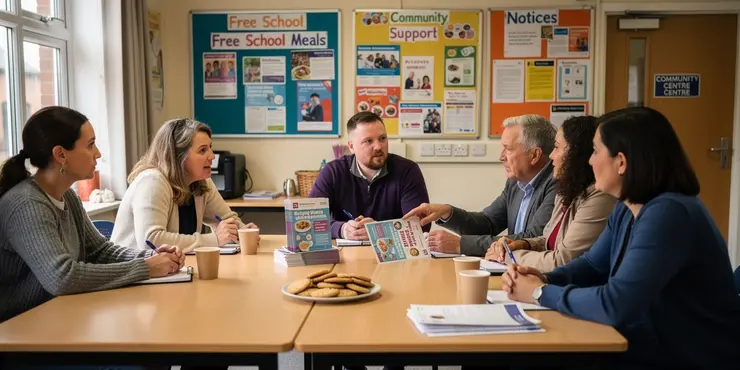
Ministers to Debate Extension of Free School Meals for Low-Income Families
Relevance: 34%
-
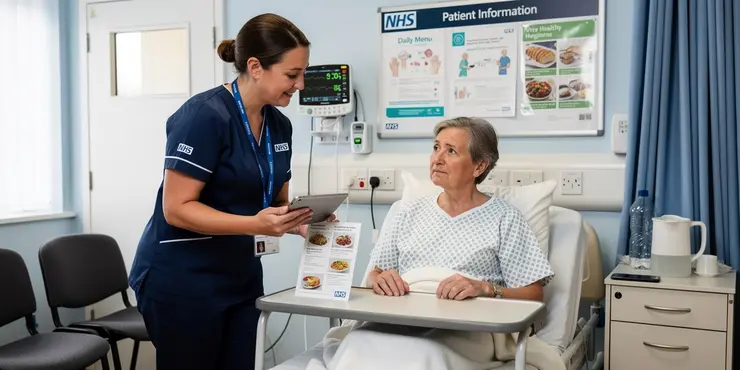
What time are meals served?
Relevance: 31%
-

How is the quality of live-in care monitored?
Relevance: 30%
-
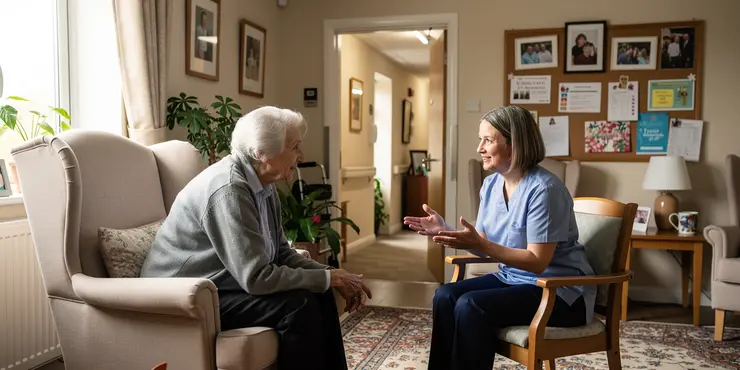
How is the quality of care regulated in care homes?
Relevance: 29%
-
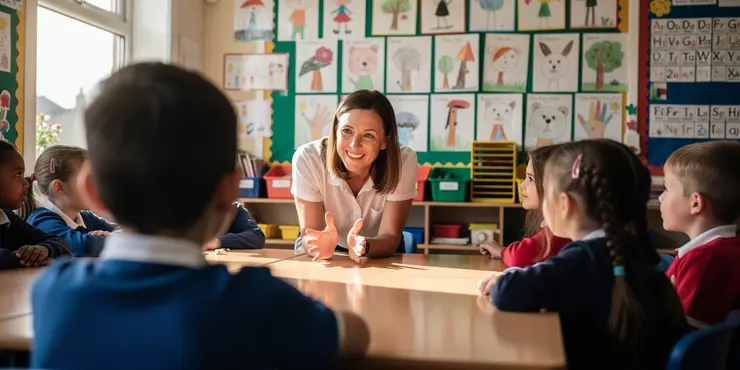
See4School
Relevance: 29%
-
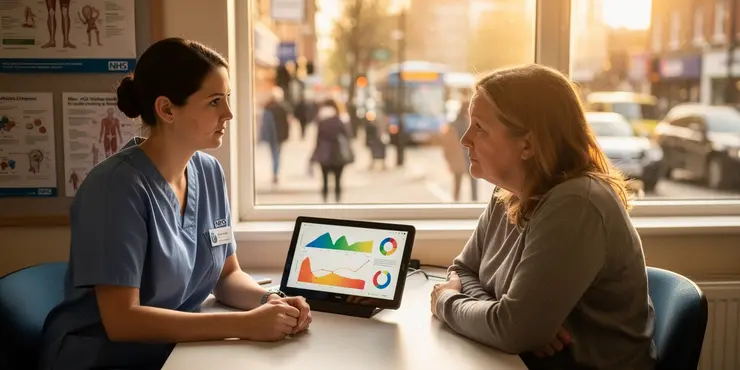
Is UK air quality changing?
Relevance: 29%
-
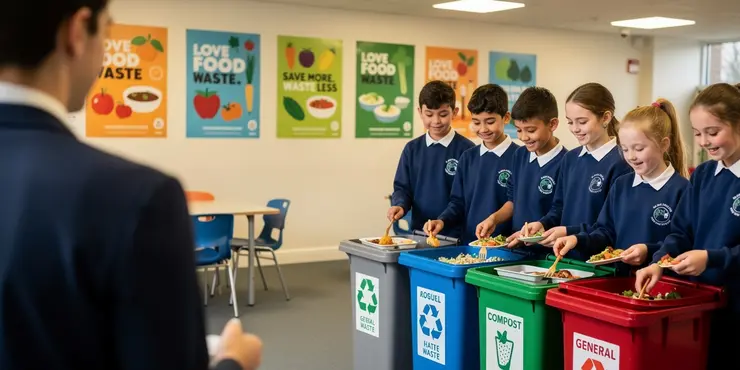
Are there any initiatives to reduce food waste in schools?
Relevance: 29%
-
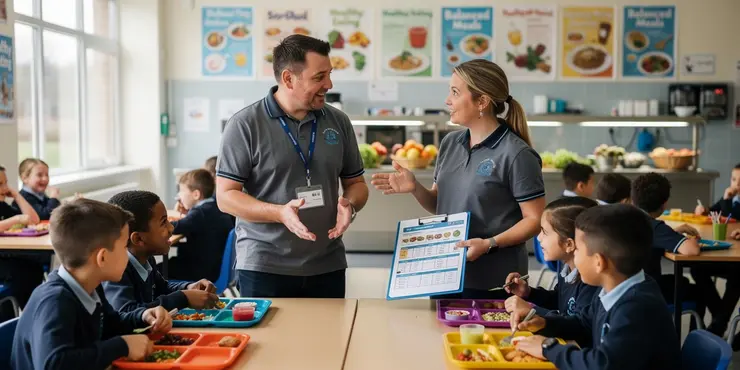
How are school meal providers selected?
Relevance: 29%
-
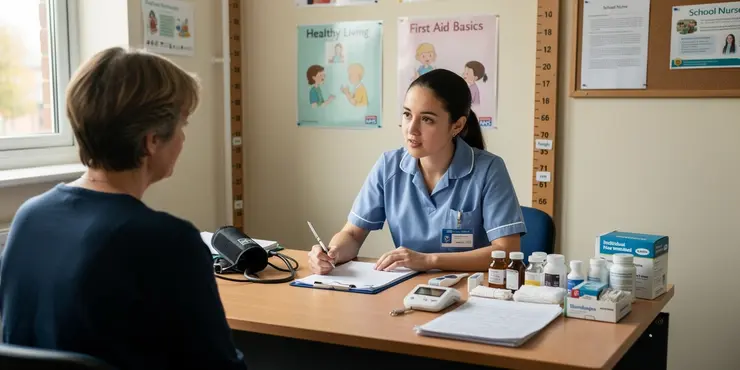
How are food allergies managed in UK schools?
Relevance: 27%
-

Are some UK beaches rated better for water quality than others?
Relevance: 27%
-
How can I calculate the fat content in my meals?
Relevance: 27%
-
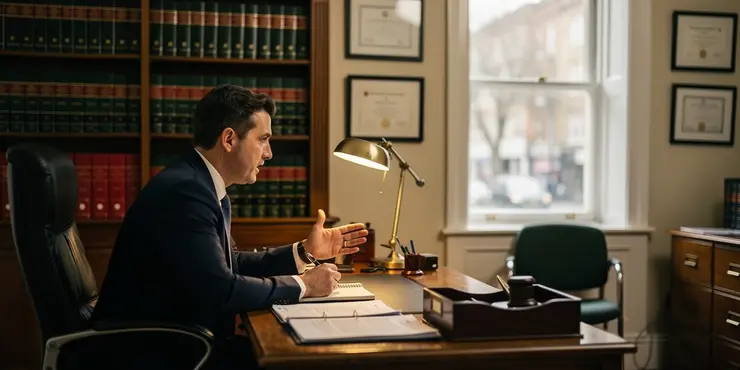
Are there specific laws governing SEND in schools?
Relevance: 26%
-
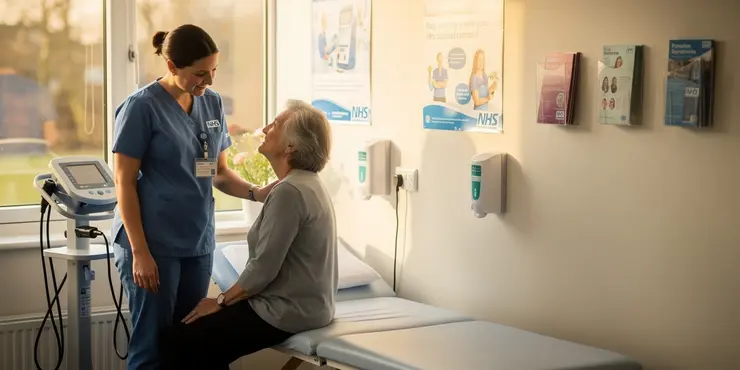
What is the standard of care in professional negligence?
Relevance: 26%
-
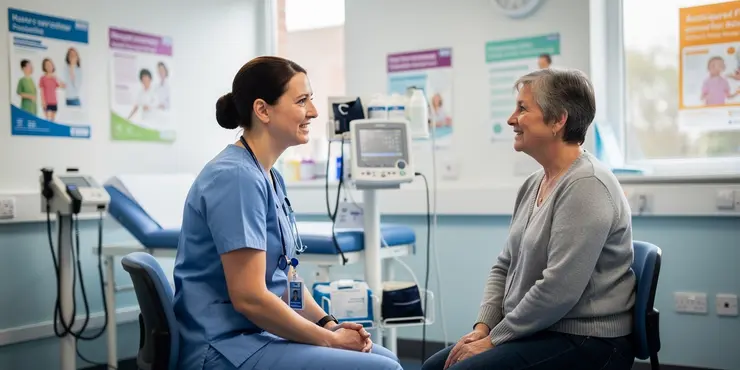
Where can customers find updates on their water company's performance standards?
Relevance: 26%
-
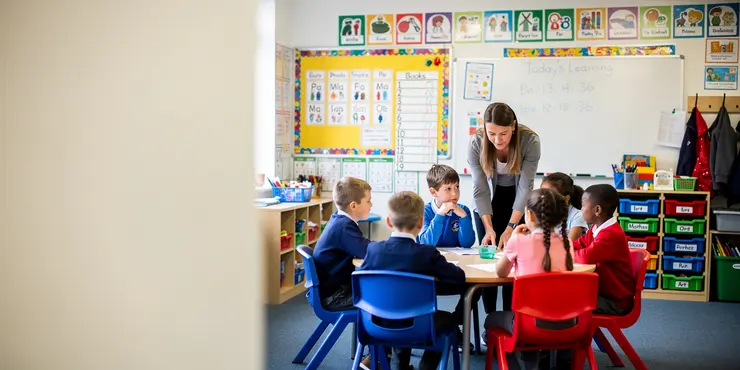
Do SEND children attend mainstream schools?
Relevance: 25%
-
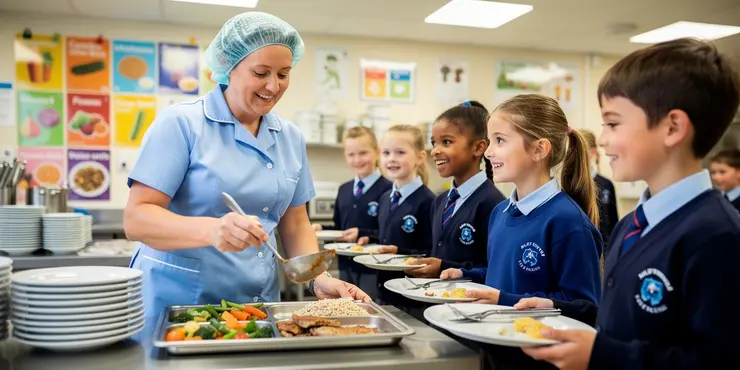
Do school meals include both hot and cold options?
Relevance: 25%
-
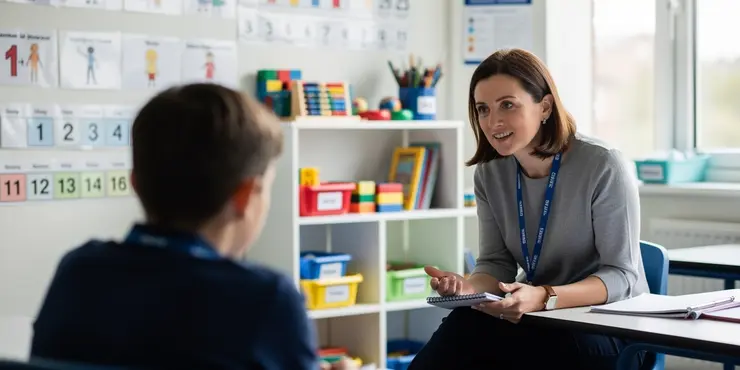
What is the SENCO's role in a school?
Relevance: 24%
-
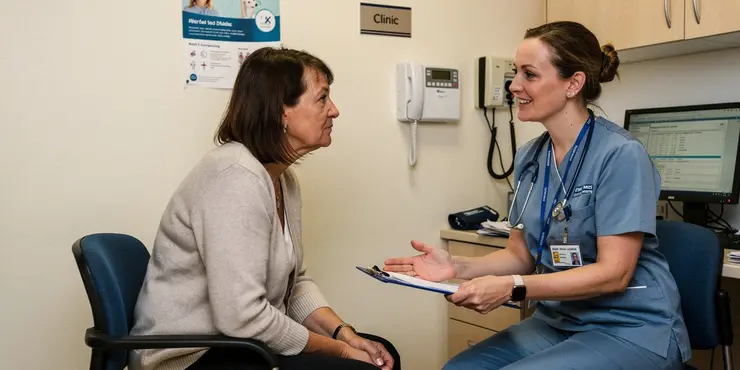
What are the consequences for banks not complying with transparency standards?
Relevance: 24%
-
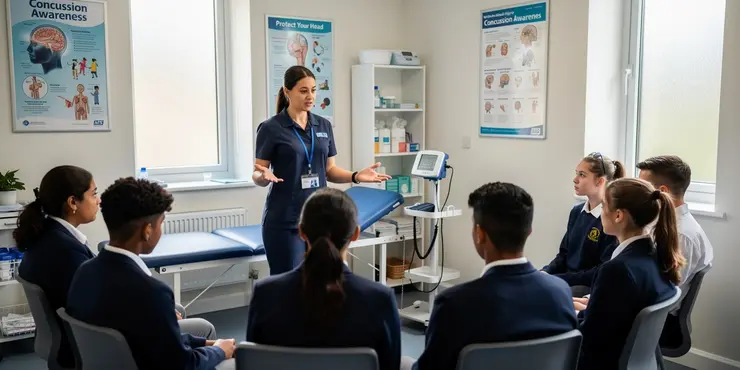
What role do schools play in managing concussions?
Relevance: 24%
-

What happens to my loans if I go back to school?
Relevance: 24%
-
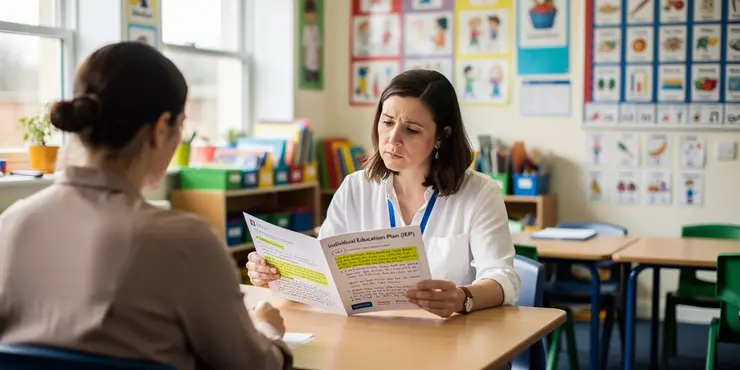
What support is available for SEND children in schools?
Relevance: 24%
-
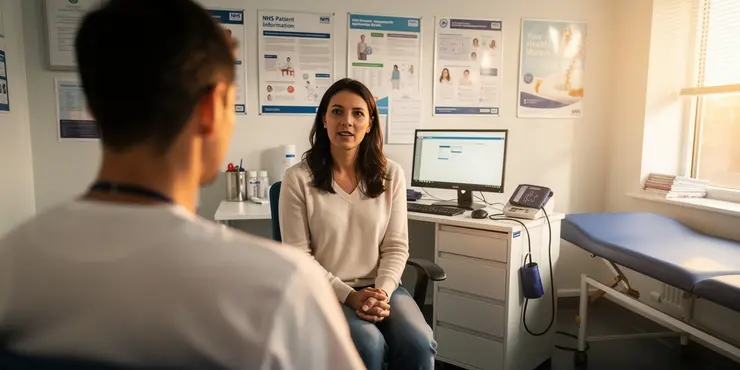
Are green energy tariffs more expensive than standard tariffs?
Relevance: 24%
Introduction to School Meal Inspections
In the UK, the quality and standards of school meals are subject to inspections and regulations to ensure they meet health and nutritional guidelines. These inspections play a crucial role in safeguarding the wellbeing of students by promoting healthy eating habits and providing balanced nutrition.
Nutritional Standards
School meals must comply with the School Food Standards, which are mandatory for all maintained schools, academies, and free schools. These standards are designed to ensure that children receive a balanced diet, with requirements on the inclusion of fruits, vegetables, protein, dairy, and whole grains, while limiting the intake of fat, sugar, and salt. The aim is to combat issues such as obesity, malnutrition, and to foster a healthy lifestyle from a young age.
Inspection Framework
The inspections of school meals are primarily conducted by Ofsted, the Office for Standards in Education, Children’s Services and Skills. While Ofsted assessments focus on the teaching environment, they also encompass aspects related to student welfare, including the quality of food provided. Additionally, local authorities often conduct their inspections or work with Health and Safety executives to ensure compliance with safety and hygiene standards.
Role of Local Authorities and Public Health
Local authorities have a significant responsibility in monitoring school food services. They collaborate with caterers and school administration to offer guidance on meeting nutritional standards and often conduct audits to assess adherence. Public Health England supports schools by providing guidelines and resources to improve meal quality and promote healthy eating among students. These efforts are part of a broader initiative to enhance public health through dietary interventions.
Importance of Quality Inspections
Quality inspections of school meals are crucial for a few reasons. They ensure that the food provided is safe and hygienic, meeting the necessary dietary requirements. Regular checks help identify any shortcomings in service provision and maintain high standards of food preparation and delivery. Furthermore, these inspections often include feedback mechanisms which allow students and parents to voice concerns or suggestions about the meal services.
Challenges and Considerations
Despite the structured framework for inspections, there are challenges in consistently maintaining high standards across all schools. Budget constraints, varying levels of commitment from local management, and differences in catering provisions can impact the quality of meals. It is important for stakeholders at all levels, from government to local authorities and school administrations, to work collaboratively to overcome these challenges.
Conclusion
The inspection and regulation of school meals in the UK are vital processes aimed at safeguarding student health through nutritious and quality meals. By adhering to established standards and conducting regular inspections, schools help promote a positive learning environment and foster lifelong healthy eating habits among students. Continued efforts and cooperation among educational and health authorities remain essential in ensuring the success and improvement of school meal provisions.
Introduction to School Meal Inspections
In the UK, school meals are checked to make sure they are healthy and good for students. These checks help students eat healthy food that is good for their bodies.
Nutritional Standards
School meals must follow certain rules to make sure kids eat a balanced diet. This means having fruits, vegetables, protein, dairy, and whole grains in their meals. Schools try not to give lots of fat, sugar, or salt. These rules help keep kids healthy and strong.
Inspection Framework
Ofsted, the group that checks schools, also looks at the food to make sure it is good for the students. Local councils also do checks or work with Health and Safety teams to make sure the food is safe and clean.
Role of Local Authorities and Public Health
Local councils help schools provide good meals. They work with people who make the food to give advice and do checks. Public Health England gives schools tips and resources to help with good meal planning. Together, these groups work to keep students healthy.
Importance of Quality Inspections
Checking school meals is important. It makes sure the food is safe, healthy, and meets dietary needs. These checks also help find and fix any problems. Students and parents can share their thoughts and suggestions to improve meal services.
Challenges and Considerations
Keeping high food standards in all schools can be hard. Money limits, different levels of support, and different food services can affect meal quality. Everyone involved, like the government, local councils, and schools, needs to work together to solve these problems.
Conclusion
Checking and setting rules for school meals is important for keeping students healthy in the UK. By following rules and checking regularly, schools can help students learn well and develop healthy eating habits for life. Working together with health and education groups is key to making school meals the best they can be.
Frequently Asked Questions
Are school meals regularly inspected for quality?
Yes, school meals are regularly inspected to ensure they meet quality and nutritional standards set by governing bodies.
Who is responsible for inspecting school meals?
School meals are usually inspected by local health departments, school nutrition professionals, and food service authorities.
What standards must school meals meet?
School meals must meet standards set by federal, state, and local authorities, including nutritional content, safety, and hygiene requirements.
How often are school meals inspected?
The frequency of inspections can vary, but typically, school meals are inspected several times throughout the school year.
What happens if a school meal program does not meet standards?
If a school meal program does not meet standards, corrective actions are usually required, and the school may face penalties or additional inspections.
Are there specific nutritional guidelines for school meals?
Yes, there are specific nutritional guidelines, like those established by the USDA's National School Lunch Program, which emphasize balanced and healthy meal options.
Do schools inspect ingredients for school meals?
Yes, schools inspect the ingredients used in meals to ensure they are fresh, safe, and meet nutritional guidelines.
Are students allowed to provide feedback on school meal quality?
Many schools have systems in place for students to provide feedback on school meal quality, which can be used to improve offerings.
What role do dieticians play in school meal inspections?
Dieticians often help design and evaluate meal plans to ensure they meet nutritional standards and are balanced.
Is food safety part of the school meal inspection process?
Yes, food safety is a critical component of school meal inspections, ensuring that food is stored, prepared, and served safely.
Can parents participate in the school meal inspection process?
Parents might be involved through advisory panels or committees designed to oversee and provide feedback on school meal programs.
Are there penalties for failing to comply with school meal standards?
Yes, schools may face sanctions such as funding withdrawal or the need for additional inspections if they fail to comply with standards.
How do schools ensure culturally appropriate meals in their inspections?
Schools might consider cultural preferences and dietary restrictions when planning and inspecting meals, often consulting community members.
Do school meal inspections address allergen management?
Yes, managing allergens is a critical part of school meal inspections to ensure student safety.
Are school meal inspections standardized across all states?
While federal guidelines exist, states may have their own additional standards and inspection processes.
How do schools use feedback from inspections?
Schools use feedback from inspections to improve meal quality, enhance nutritional content, and address any deficiencies.
Can school meal inspections lead to menu changes?
Yes, based on inspection findings, schools may alter their menus to better align with standards and feedback.
What documents are reviewed during a school meal inspection?
Inspectors may review production records, inventory logs, and health inspection reports during an inspection.
Are there special inspections for new school meal programs?
New meal programs may undergo initial evaluations and more frequent inspections to ensure they start on the right track.
How is the quality of school meals communicated to parents and the community?
Schools may use newsletters, meetings, or websites to communicate the quality and standards of school meals to parents and the broader community.
Do people check if school meals are good?
Yes, people check school meals often to make sure they are good and healthy. They have to meet the rules set by important organizations.
Who checks the food at school?
Someone makes sure the food at school is good and safe to eat. They check that meals are healthy. They visit schools to look at the food. This helps keep everyone healthy.
You can use pictures or videos to learn more about this. They can help you understand better.
People check school meals to make sure they are safe and healthy. These people are from local health groups, school food experts, and food service teams.
What rules must school meals follow?
School meals have rules to make sure they are healthy and good for kids. Here are the simple rules:
- Meals should have fruits and vegetables.
- Include proteins like chicken, beans, or eggs.
- Have grains, like bread or pasta.
- Food should have little sugar and salt.
- Drinks should be mostly water or milk.
These rules help kids grow strong and healthy.
For help, you can use pictures or charts to understand what foods are included in meals. Lists can make it easier to remember important points.
School lunches must follow rules. These rules come from the government and local areas. The rules make sure the food is healthy, safe, and clean.
How often are school meals checked?
Schools check the food in the lunch room many times each year.
What if a school lunch program is not good enough?
If a school lunch program is not good, it might need to change. The people who check school meals could ask the school to make the food better.
Tools like picture charts can help show how to make meals better. Schools can use easy-to-read guides to help them fix problems.
If a school lunch program is not good enough, they have to make it better. The school might get in trouble and have more people check their lunches.
Are there special food rules for school lunches?
Yes, there are special rules for school lunches. These rules help schools give healthy food to kids. Schools try to give meals with fruits, veggies, proteins, and grains. They also make sure meals have less sugar, salt, and fat.
If you want to know more, you can ask a teacher or check the school's website.
You can use pictures or color codes to help understand these rules better.
Yes, there are rules about what foods are healthy. These rules help people make healthy meals, like the ones in the USDA's School Lunch Program.
Do schools check what is in school meals?
Schools make sure that the food they serve is good for you. They look at what goes into the meals. This means they check the ingredients.
It helps to use pictures or simple lists if you want to learn more about this. You can also ask a teacher or a parent to help you understand.
Yes, schools check the food ingredients. They make sure the ingredients are fresh, safe, and healthy for students.
Can students say what they think about school meals?
Students can tell teachers or school staff if they like or do not like the food at school. This helps the school know what food is good or needs to be better.
Here are some ways to give feedback:
- Talk to a teacher or lunch staff.
- Write down your thoughts and give it to the teacher.
- Use a picture or drawing to show how you feel about the food.
If students need help, they can ask a teacher or an adult they trust.
A lot of schools have ways for kids to say what they think about the school lunches. This helps make the food better.
What do dieticians do when they check school meals?
Dieticians help schools make sure meals are healthy. They check the food to see if it is good for you.
If you have trouble reading, here are some tips:
- Ask someone to explain the words you don’t understand.
- Use pictures to help you understand better.
- Take your time and read slowly.
Dieticians are people who know a lot about healthy eating. They help make meal plans that are good for your body and keep you healthy.
Do they check food safety in school meals?
Yes, food safety is very important in schools. It makes sure that food is kept, cooked, and given out safely.
Can parents help check school meals?
Parents can help by joining groups that give advice about school meals. These groups talk about the food and give ideas to make it better.
Will you get in trouble if you do not follow school meal rules?
Yes, schools can get into trouble if they don't follow the rules. They might lose money or have more checks to see if they are doing okay.
If you find this hard to read, try using tools like text-to-speech, which can read the words out loud for you. You can also ask someone you trust to help explain it to you.
How do schools make sure meals are right for everyone's culture during checks?
Schools think about what different cultures like to eat and special food needs when planning meals. They often ask people in the community for their ideas.
Do school meal checks look at how allergies are handled?
Yes, taking care of things that cause allergies is very important when checking school meals. This keeps students safe.
Do all states check school meals the same way?
The government has rules for safety. But each state can have its own rules, too.
What do schools do with inspection feedback?
When inspectors visit schools, they look at how the school is doing. After the visit, they give a report with advice. Schools use this report to get better.
Here’s how schools use the feedback:
- Fix problems the inspectors found.
- Make plans to help students learn more.
- Train teachers to teach better.
- Check if new changes are working well.
Reading tip: Use tools that read the text aloud. Highlight words to understand better.
Schools listen to what inspections say. They use this to make meals better, healthier, and fix any problems.
Can checking school meals change the food?
When people look at school meals, they might change what is on the menu. They check if the food is good for you.
Tools that can help:
- Pictures of different foods
- Charts showing healthy foods
Yes, after checking the food, schools might change their menus to make them better and follow the rules.
What papers are checked during a school meal check-up?
When people check school meals, they look at some important papers. These papers help them see if the meals are healthy and safe for kids. Here are the papers they might check:
- Menus: The list of foods that the school serves.
- Nutrition Reports: Information that shows if the food is healthy.
- Safety Records: Papers that show the kitchen is clean and safe.
If you find it hard to read these papers, you can ask a teacher or a parent to help you. You can also use a highlighter to focus on important words or make notes in the margins.
Inspectors look at important papers.
They check how things are made, what's in stock, and health reports.
Do new school meal programs have special checks?
When schools start new meal programs, they do special checks. This makes sure the food is good for kids and safe to eat.
If you find it hard to read, you can use tools like text-to-speech. This means the computer reads the words out loud. You can also ask someone to help explain it.
New food programs might be checked at the start. They will be looked at more often to make sure they are doing well.
How do schools tell parents and people about the meals?
Schools can tell parents about school meals using newsletters, meetings, or websites. This way, everyone knows how good the food is at school.
If you need help understanding, you can:
- Ask someone to read it with you.
- Use a reading app to read it out loud.
Useful Links
This website offers general information and is not a substitute for professional advice.
Always seek guidance from qualified professionals.
If you have any medical concerns or need urgent help, contact a healthcare professional or emergency services immediately.
Some of this content was generated with AI assistance. We’ve done our best to keep it accurate, helpful, and human-friendly.
- Ergsy carfully checks the information in the videos we provide here.
- Videos shown by Youtube after a video has completed, have NOT been reviewed by ERGSY.
- To view, click the arrow in centre of video.
- Most of the videos you find here will have subtitles and/or closed captions available.
- You may need to turn these on, and choose your preferred language.
- Go to the video you'd like to watch.
- If closed captions (CC) are available, settings will be visible on the bottom right of the video player.
- To turn on Captions, click settings .
- To turn off Captions, click settings again.
More Items From Ergsy search
-

Are school meals inspected for quality and standards?
Relevance: 100%
-

School meals in the UK?
Relevance: 68%
-

How are school meals provided in the UK?
Relevance: 66%
-

Who is responsible for providing school meals in the UK?
Relevance: 63%
-

What is the purpose of providing school meals in the UK?
Relevance: 60%
-

What is included in a typical school meal in the UK?
Relevance: 57%
-

Are vegetarian or vegan options available in UK school meals?
Relevance: 55%
-

Calls for Better School Lunch Standards After Nationwide Survey
Relevance: 53%
-

Are school meals free for all students in the UK?
Relevance: 53%
-

Who provides the funding for free school meals in the UK?
Relevance: 53%
-

How are special dietary requirements catered for in school meals?
Relevance: 53%
-

How can parents provide feedback on school meals?
Relevance: 52%
-

What measures are taken to ensure food safety in school meals?
Relevance: 52%
-

Are there educational components to the school meal program?
Relevance: 51%
-

Can children with disabilities access school meals?
Relevance: 50%
-

Can parents provide packed lunches instead of school meals?
Relevance: 47%
-

What criteria must be met for a child to be eligible for free school meals?
Relevance: 46%
-

Is there a focus on healthy eating in UK school meals?
Relevance: 45%
-

Ministers to Debate Extension of Free School Meals for Low-Income Families
Relevance: 34%
-

What time are meals served?
Relevance: 31%
-

How is the quality of live-in care monitored?
Relevance: 30%
-

How is the quality of care regulated in care homes?
Relevance: 29%
-

See4School
Relevance: 29%
-

Is UK air quality changing?
Relevance: 29%
-

Are there any initiatives to reduce food waste in schools?
Relevance: 29%
-

How are school meal providers selected?
Relevance: 29%
-

How are food allergies managed in UK schools?
Relevance: 27%
-

Are some UK beaches rated better for water quality than others?
Relevance: 27%
-
How can I calculate the fat content in my meals?
Relevance: 27%
-

Are there specific laws governing SEND in schools?
Relevance: 26%
-

What is the standard of care in professional negligence?
Relevance: 26%
-

Where can customers find updates on their water company's performance standards?
Relevance: 26%
-

Do SEND children attend mainstream schools?
Relevance: 25%
-

Do school meals include both hot and cold options?
Relevance: 25%
-

What is the SENCO's role in a school?
Relevance: 24%
-

What are the consequences for banks not complying with transparency standards?
Relevance: 24%
-

What role do schools play in managing concussions?
Relevance: 24%
-

What happens to my loans if I go back to school?
Relevance: 24%
-

What support is available for SEND children in schools?
Relevance: 24%
-

Are green energy tariffs more expensive than standard tariffs?
Relevance: 24%


